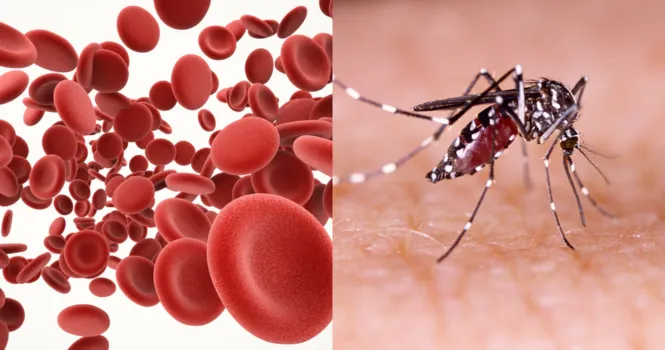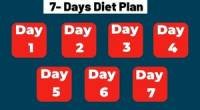Intermittent Fasting to Lose Weight
What is Intermittent Fasting?
It is the method where you fast for a certain time, hours or days and after which you eat for a period of time. The duration of the fasting interval and the eating interval is best adjusted to your lifestyle, to lose weight and for a healthy body.
Based on your lifestyle and how you could incorporate the periods of fasting alternating with periods of fasting. There are many types of IF methods employed.
What are the types of Intermittent Fasting methods to lose weight?
- Intermittent fasting 16/8
- Intermittent fasting 20/4
- Intermittent fasting 18/6
- Intermittent fasting 14/10
- Intermittent fasting 5/2
- Intermittent fasting 23/1
- Intermittent fasting 24/0
So why should we even consider intermittent fasting?
It has many benefits which include,
- Weight Loss
- Increases Insulin Sensitivity
- Stabilises Blood Glucose Levels
- Improved Brain Functions, which leads to increased focus and productivity
- Longevity
- Improved metabolism
- Benefits on overall health
How Does IF Work for Weight Loss?
It works by getting to break down fat .
Normally when you fast, the food which you just ate gets digested and used for energy and later , when there is no food, then the body digs into glycogen reserves stored in the liver. When glycogen stores are also depleted, then the body digs into fat for energy needs.
To get the body to tap into fat reserves, the fasting duration has to be more than the regular overnight fasting, and hence many intermittent fasting schedules are being followed.
- Intermittent fasting 16/8
- Intermittent fasting 20/4
- Intermittent fasting 18/6
- Intermittent fasting 14/10
- Intermittent fasting 5/2
- Intermittent fasting 23/1
- Intermittent fasting 24/0
While IF 18/6 is the most common one as it suits many people and their lifestyle.
There is no magic here. As with all things in life, being consistent plays an important role. And since we can’t be motivated all the time, we must form new habits and a follow a routine.
Let’s briefly know about other IF schedules,
Intermittent fasting 20/4
The 20/4 intermittent fasting method, also known as the “Warrior Diet,” is a type of IF that involves fasting for 20 hours and then eating during a 4-hour window.
Intermittent Fasting 18/6
The 18/6 method is a type of intermittent fasting that involves fasting for 18 hours and then eating during a 6-hour window. This method of fasting is also known as the “lean gains” method.
Intermittent fasting 14/10
The 14/10 method is a type of intermittent fasting that involves fasting for 14 hours and then eating during a 10-hour window. This method of fasting is less restrictive than some other forms of intermittent fasting and may be a good option for people who are new to fasting or who have a busy schedule.
Intermittent fasting 5/2
The 5/2 method is a type of intermittent fasting that involves eating normally for 5 days and then restricting calorie intake to 500-600 calories for the remaining 2 non-consecutive days of the week. This method is also known as the “Fast Diet” and was popularized by Dr. Michael Mosley
Intermittent fasting 23/1
The 23/1 method is a type of intermittent fasting that involves fasting for 23 hours and eating during a 1-hour window. This is one of the most restrictive forms of intermittent fasting and may be difficult for some people to maintain.
Intermittent fasting 24/0
The 24/0 method, also known as “daily intermittent fasting” or “24-hour fasting” is a type of intermittent fasting that involves fasting for 24 hours every day, and then eating during the next 24-hour period. This means that you will be skipping one meal per day, usually dinner and breakfast. This type of intermittent fasting is the most restrictive type of intermittent fasting and may not be suitable for everyone.
How to start Intermittent Fasting, for Beginners?
The commonest among these is 16/8 ; which essentially means you would fast for 16 hours and eat during the 8 hour period.
Your approximate daily schedule would be,
Last meal of the day : 8 pm ( Fasting starts after the meal )
Sleep : 11 pm
We know that and have already discussed in previous videos that Your last meal should be at least 3 hours before you sleep.
First meal of the day : 12 Noon ( on Next day)
Your eating period would be between 12 Noon and 8 pm.
We normally fast overnight, which is 8 or 9 hours and by extending this duration for a few more hours by skipping breakfast, we end up in 16/8 intermittent fasting.
If skipping breakfast is difficult, then start with 12 and then slowly move up to 16 as and when your body gets adjusted to it.
Why are we extending the duration of overnight fasting for a few more hours?
We are doing it to tap into the fat reserves for energy and to lose weight; while tapping into other benefits such as increased insulin sensitivity and increased metabolism and the hormonal changes which happen during this is beneficial to overall well being and longevity;
As we have different work schedules and sleeping patterns, some methods may not be suitable. Talk to your healthcare provider to plan it and more so if you have any pre-existing medical conditions such as diabetes.
Remember to eat a balanced diet in your eating period and avoid processed food items altogether and be hydrated at all times.
What to eat during intermittent Fasting?
It is important to focus on Nutrient dense whole foods that are rich in fiber, protein and healthy fats. Few examples are
- Vegetables such as Broccoli, spinach etc are packed with vitamins, minerals, and antioxidants, making them a great choice for fasting windows.
- Lean Proteins such as chicken and fish, tofu etc
- Fruits such as apples, oranges, berries and pears
- Nuts and seeds: Nuts and seeds are high in healthy fats and protein, and they can help you feel full for longer during fasting windows. Healthy fats are also found in food such as avocado, olive oil etc.
- Whole grains as in jowar , quinoa, whole wheat bread, etc.
- Legumes: beans, lentils, chickpeas, etc.
While you incorporate all this into your daily diet , make sure you
- Eat slowly and chew properly, as it sends the signal to the brain when you are full and avoids unnecessary overloading yourself.
- Drink plenty of water and being hydrated enough is important and helps you curb hunger during your cravings
- Avoid alcohol .
Foods to avoid during intermittent fasting include
- Processed foods
- Sugary drinks
- Fried Foods
- High-calorie snacks
Benefits
The Benefits includes
1. Increased Insulin Sensitivity
One of the biggest benefits is increased insulin sensitivity. Insulin is the hormone that regulates blood sugar levels, and when our insulin sensitivity is high, our body is better able to regulate blood sugar levels. This can help to reduce the risk of developing type 2 diabetes and other related conditions, which lead to
2. Improved Metabolism leading to Weight Loss
Another benefit is improved metabolism. When we fast, our body is forced to burn stored fat for energy, which can help to boost metabolism and lead to weight loss. Additionally, it has been shown to increase levels of human growth hormone (HGH), which is important for maintaining a healthy metabolism.
3. Improved Brain Function
It has also been shown to have a positive impact on brain function. When we fast, our body is able to produce more of a protein called brain-derived neurotrophic factor (BDNF), which is important for healthy brain function
4. Decreased Inflammation
It has been shown to have anti-inflammatory effects, which can help to reduce the risk of developing chronic diseases such as heart disease, stroke, and cancer. This is due to the fact that when we fast, our body is able to reduce oxidative stress and inflammation, which are two of the key drivers of chronic disease.
5. Longer Life Span
Finally, it has been shown to increase lifespan. This is likely due to the fact that it helps to reduce oxidative stress, improve cellular health, and boost overall health and wellness.
Side effects
The Side effects includes,
- Hunger: During the fasting period, you may feel hungrier than usual. This is normal and it will typically subside as your body adjusts to the new eating pattern.
- Fatigue: During the fasting period, you may feel more tired or sluggish than usual. This is also normal and it will typically subside as your body adjusts to the new eating pattern. Make sure it doesn’t affect your work
- Headaches: Some people may experience headaches during the fasting period. This is typically due to changes in blood sugar levels and can be relieved by drinking water or other non-caloric beverages.
- Constipation: Fasting can slow down digestion and cause constipation. Drinking plenty of water and eating high-fiber foods during the non-fasting period can help to alleviate this side effect.
- Dizziness or lightheadedness: Some people may experience dizziness or lightheadedness during the fasting period, especially if they’re new to fasting. This is typically due to changes in blood sugar levels and can be relieved by eating a small snack or drinking a non-caloric beverage.
- Irritability: Some people may experience irritability or mood changes during the fasting period.
It’s important to note that these side effects are usually temporary and will subside as your body adjusts to the new eating pattern. If you experience severe or persistent side effects, it’s important to consult a healthcare professional to determine if intermittent fasting is safe for you.
![]()












